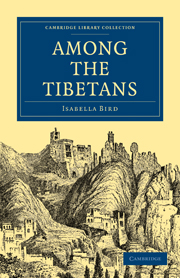Summary
The Vale of Kashmir is too well known to require description. It is the ‘happy hunting-ground’ of the Anglo-Indian sportsman and tourist, the resort of artists and invalids, the home of pashm, shawls and exquisitely embroidered fabrics, and the land of Lalla Rookh. Its inhabitants, chiefly Moslems, infamously governed by Hindus, are a feeble race, attracting little interest, valuable to travellers as ‘coolies’ or porters, and repulsive to them from the mingled cunning and obsequiousness which have been fostered by ages of oppression. But even for them there is the dawn of hope, for the Church Missionary Society has a strong medical and educational mission at the capital, a hospital and dispensary under the charge of a lady M.D. have been opened for women, and a capable and upright ‘settlement officer,’ lent by the Indian Government, is investigating the iniquitous land arrangements with a view to a just settlement.
I left the Panjāb railroad system at Rawul Pindi, bought my camp equipage, and travelled through the grand ravines which lead to Kashmir or the Jhelum Valley by hill-cart, on horseback, and by house-boat, reaching Srinagar at the end of April, when the velvet lawns were at their greenest, and the foliage was at its freshest, and the deodar-skirted mountains which enclose this fairest gem of the Himalayas still wore their winter mantle of unsullied snow. Making Srinagar my headquarters, I spent two months in travelling in Kashmir, half the time in a native house-boat on the Jhelum and Pohru rivers, and the other half on horseback, camping wherever the scenery was most attractive.
- Type
- Chapter
- Information
- Among the Tibetans , pp. 7 - 39Publisher: Cambridge University PressPrint publication year: 2010First published in: 1894

